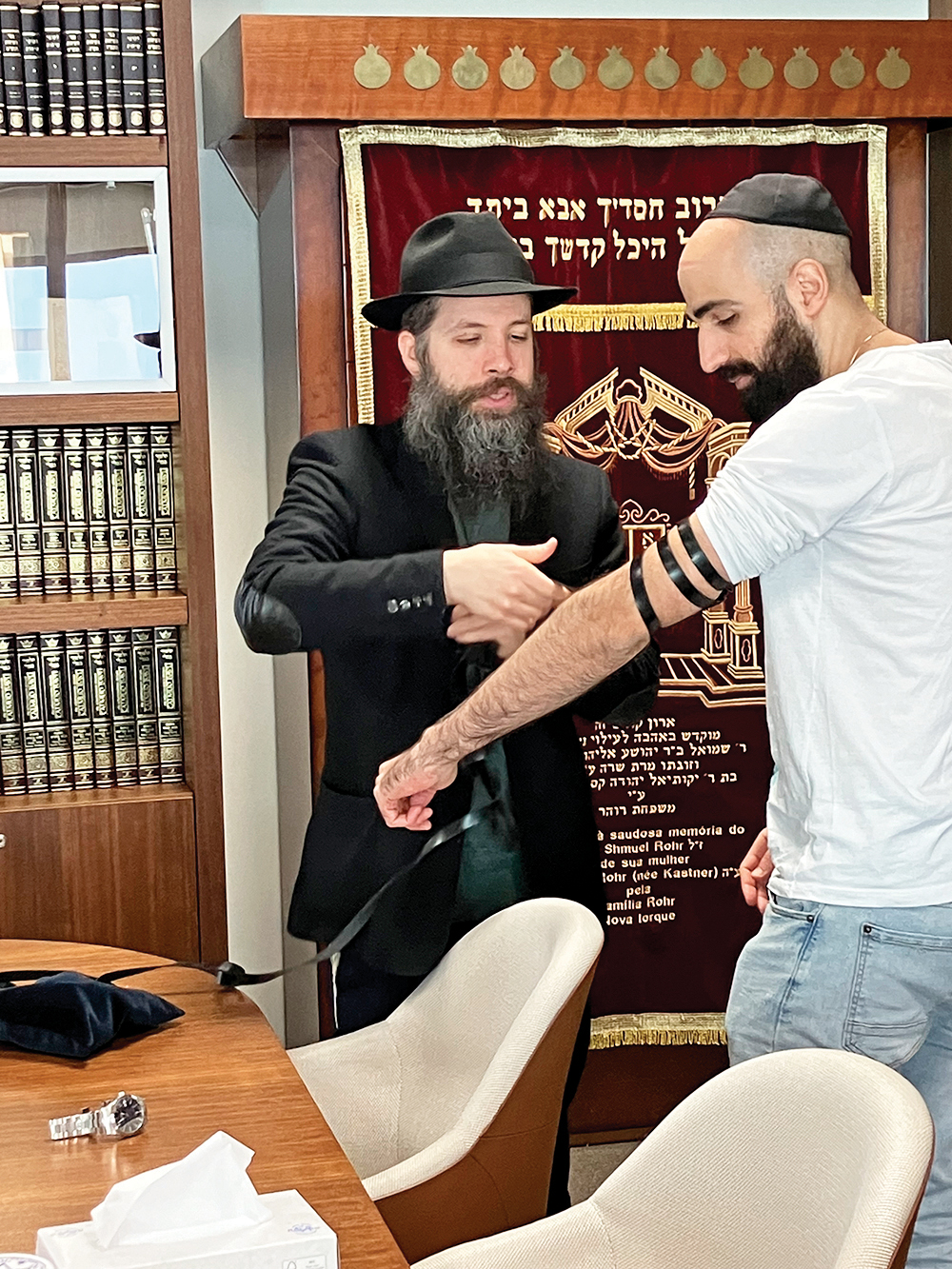Portugal, a country that has become a hot spot for digital nomads and one of the most affordable western European countries for travel, is also a destination for Jewish visitors interested in its rich Jewish past and continuing renewal.
One of the few European countries where the Jewish community is actually growing, Portugal’s Jewish population is estimated at around 3,800, according to Professor Sergio DellaPergola, a Hebrew University-based authority on the demography of global Jewry, citing statistics to be published in the forthcoming “American Jewish Year Book 2023.” (Portugal’s entire population is around 10 million.) This growth has been accelerated in recent years by the extension of citizenship in 2015 to descendants of Sephardic Jews who fled the country after the Portuguese Inquisition, attracting many immigrants from around the world.
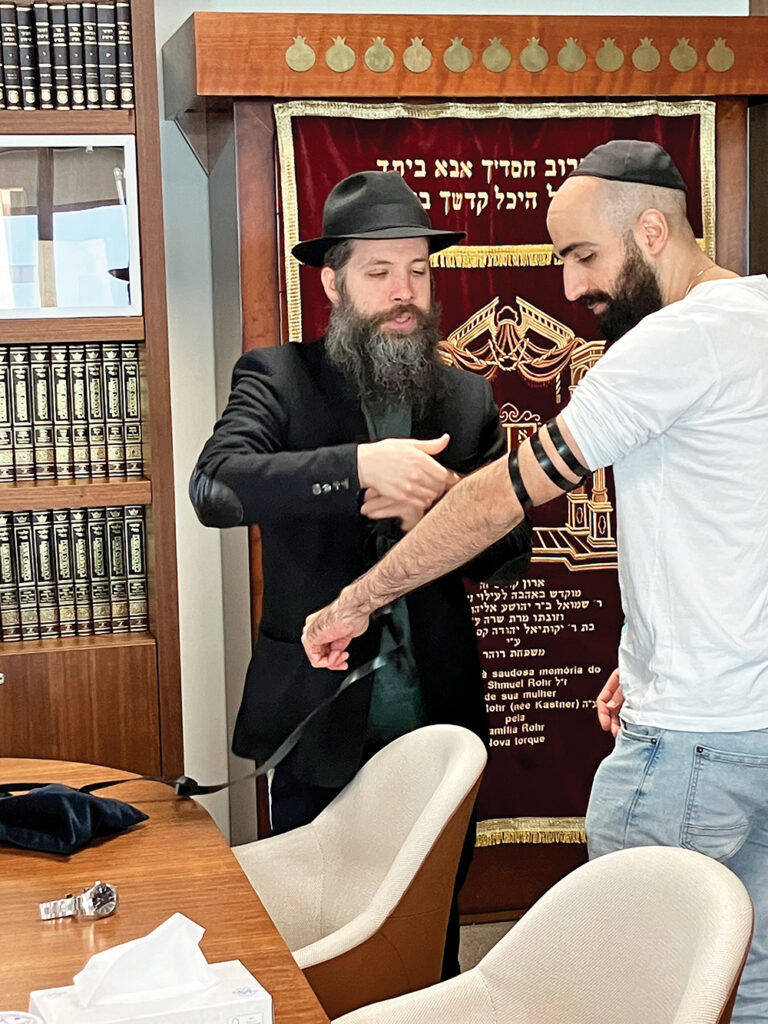
“There are dozens flocking here and settling now from many countries,” said Rabbi Ruben Suiza, rabbi of the Lisbon Jewish community and its central synagogue, Shaare Tikvah. As one example of the community’s growth, Lisbon’s first kosher restaurant, Genesis, just opened this week.
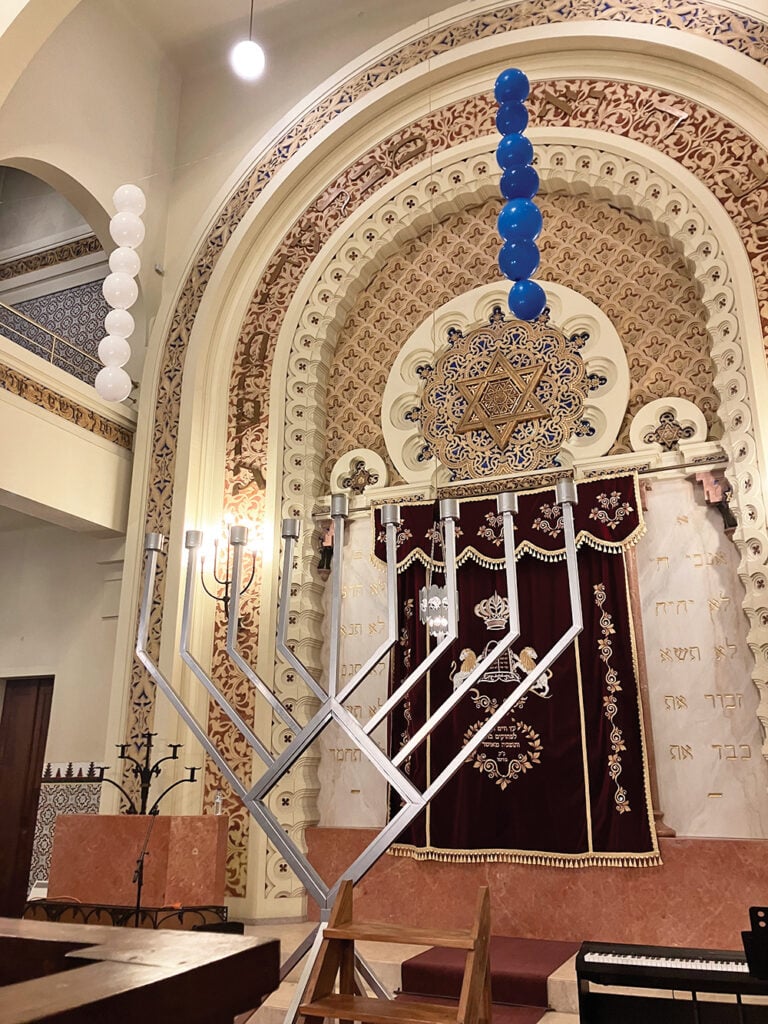
“The Jewish community in Portugal is a very interesting story,” said Israeli Ambassador to Portugal Dor Shapira. “Today you see more and more cities all around Portugal that are revealing elements from the Jews who lived here 500 years ago.”
But the history goes even further, with a Jewish presence dating as far back as the end of the Roman empire. Portuguese Jews played prominent roles in medicine and science, philosophy and business, and their significant accomplishments in math, astronomy and cartography helped the explorers discover the New World.
They also produced much in the way of Jewish scholarship, the most famous example being the rabbi and philosopher Rabbi Isaac Abarbanel, who was born in Lisbon in 1437. “There wasn’t only one Portuguese rabbi who left a great legacy of writings, there are dozens,” said Rabbi Eli Rosenfeld, the U.S.-born director of Chabad of Portugal, who along with congregants, launched a Jewish library of Portuguese rabbinic texts at his center in Cascais, an oceanside Lisbon suburb.
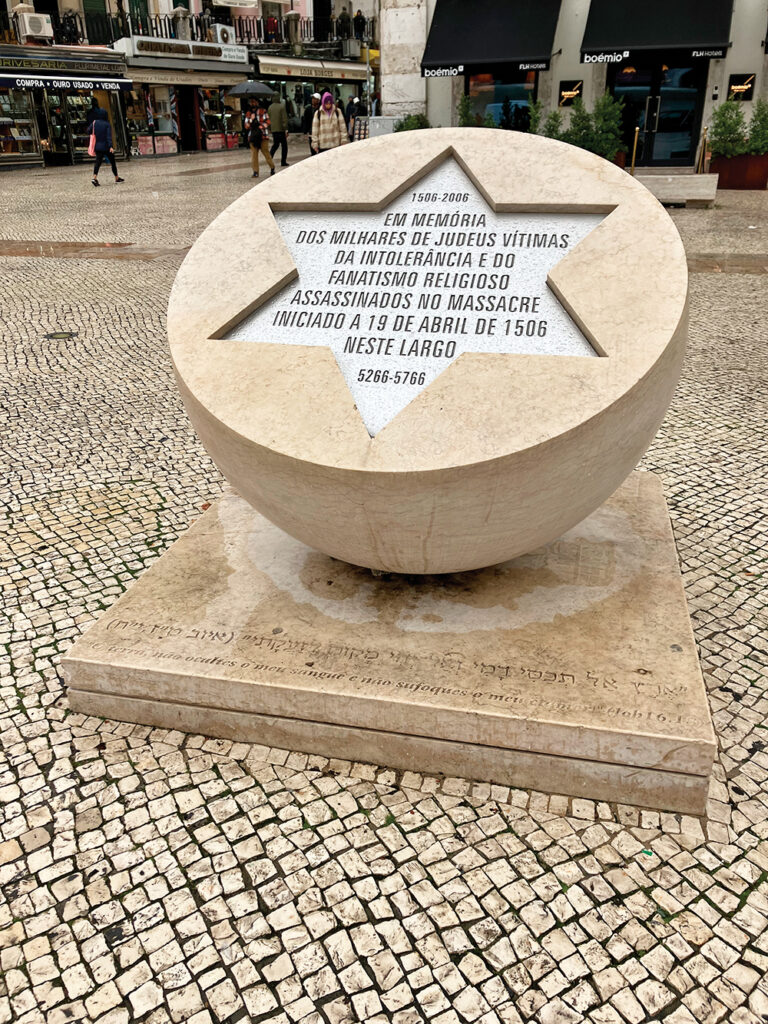
(Credit: Lori Silberman Brauner)
According to Rosenfeld, who moved in 2010 to Portugal to start the first Chabad house, the first book printed in the city of Lisbon was in Hebrew, in 1489. “In fact, the first dozens of books that were printed here mostly were in Hebrew, and we have the first book ever printed in Lisbon here in the library.” That would be Rabbi Moshe ben Nachman (or the Ramban’s) commentary to the Pentateuch. “Today we have a beautiful, beautiful collection of these books” that go back centuries.
By the Middle Ages, Lisbon had three Jewish quarters, including in the Alfama neighborhood, which was one of the few areas to survive the great Lisbon earthquake of 1755. Visitors can still see signs for “Judiaria” Street and other vestiges of the Jewish presence that continue to be developed.
The Jewish influence and legacy all came to a tragic halt in 1496 during the Edict of Expulsion issued by King Manuel I, who had married the daughter of the founders of the Spanish Inquisition, Ferdinand and Isabella. Forced to choose between converting to Catholicism or fleeing the country, Jews who stayed officially became “New Christians,” outwardly practicing Christianity while often secretly maintaining Jewish rituals. Those with more resources tended to emigrate, ending up in places as varied as Amsterdam, Hamburg and Istanbul. The Portuguese Inquisition officially began in 1536 and lasted until 1821.
Even for those who stayed, becoming a New Christian provided only limited protection. Following a serious drought and plague in 1506, Dominican friars staged riots against Lisbon’s New Christians on April 19, in which between 2,000-4,000 were murdered within a week. The Memorial to the Victims of the 1506 Massacre commemorates the massacres in a downtown square.
Only in the 19th century did the Jewish community begin returning to the country where they had once played such a prominent role. Many of the returnees, some original descendants of Jews who had fled Portugal, came from Morocco and Gibraltar and initially resided in the Algarve region in the south as well as the Azores Islands in the mid-Atlantic Ocean.
Yet despite the formal end of Jewish life in Portugal in 1496, pockets of resistance and religious Jewish practice continued, most notably in the village of Belmonte. This community of crypto-Jews had married among themselves while maintaining peculiar, disconnected Jewish practices. Their existence was documented in 1917 by Samuel Schwarz, a Jewish engineer from Poland who was working at a nearby tin mine. While it took years for them to make a formal return to Judaism, the modern Jewish community of Belmonte was founded in 1989 and its synagogue, Beit Eliahu, was inaugurated in 1996—an astounding 500 years after the decree prohibiting the practice of Judaism in Portugal.
The modern-day Jewish community of Lisbon, known as the Comunidade Israelita de Lisboa, was officially founded in 1912. The country continued to receive refugees thanks to the heroism of Aristide de Sousa Mendes, the consul general in Bordeaux, France who in 1940 disobeyed his own government’s orders (Portugal was officially neutral) by issuing thousands of visas to fleeing Jews. Officially disgraced by the government and stripped of his diplomatic position, he was later named “Righteous Among the Nations” by Israel’s Yad Vashem in 1966.
Lisbon’s Jewish community is centered around Shaare Tikvah, inaugurated in 1904 as the first synagogue built since the Inquisition. The community offers services for all stages of life, including Jewish educational programs for children and adults; a Jewish youth group, Dor Chadash; mikvah; cemetery; and a senior citizens’ group, Guil Hazaav.
Perhaps the greatest symbol of the return—and growth in Portugal’s Jewish population—is the modern-day community of Porto. This reporter visited in December and attended a Chanukah celebration with hundreds of others at its central Kadoorie-Mekor Haim Synagogue. The modern Jewish community of Porto was founded in 1923 by Captain Arthur Carlos Barros Basto, a convert to Judaism, and a group of Jewish merchants from Eastern and Central Europe—more than four centuries after the Inquisition. The synagogue is now the largest in the Iberian Peninsula and one of the largest in Europe.
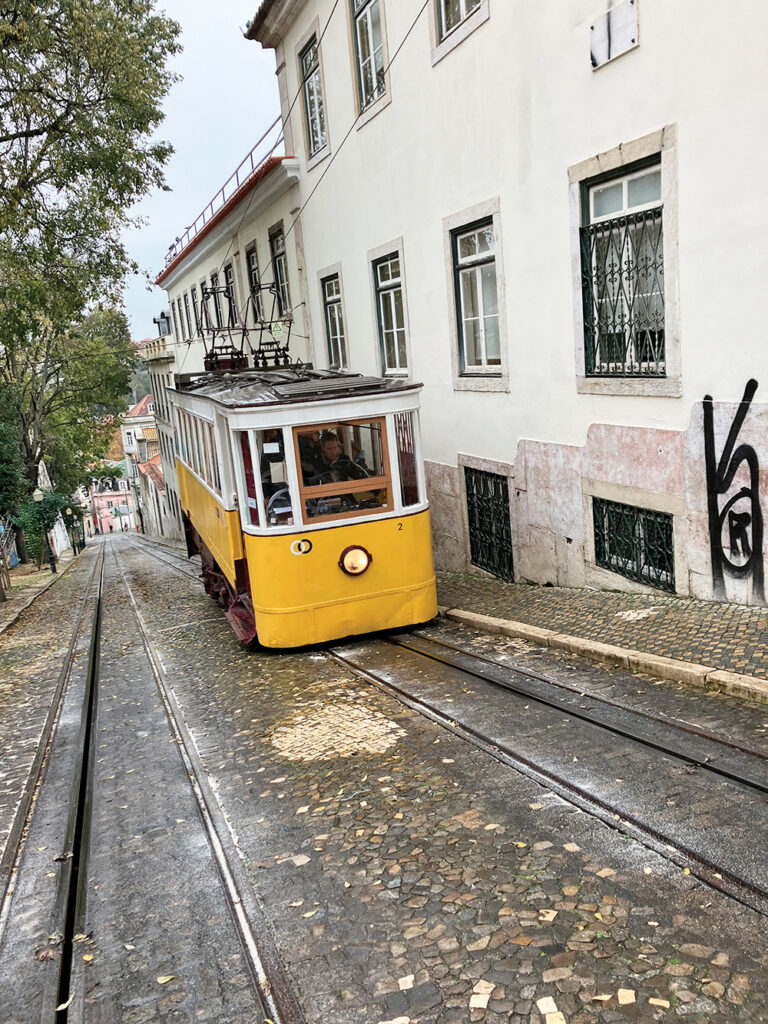
The Sephardic citizenship law has enabled thousands of descendants of persecuted Jews to claim Portuguese citizenship (there were 17,297 cases in 2022, according to Portugal’s National Statistical Institute).
Porto’s “Jewish community has grown dramatically in size over the last 10 years from a mere 40 members to over 1,500 currently,” wrote Dr. Michael Rothwell, director of Porto’s Jewish and Holocaust museums, in an email.
“The new members are from abroad, from about 30 different countries, especially Israel, France and Brazil, but also from other countries such as Canada, USA, Venezuela and the UK,” he said. Since 2014 Porto has also attracted a “university community from France, all Sephardic, for whom we opened a second synagogue.”
It should be noted that the Porto synagogue was vandalized with graffiti on Oct. 11, four days after the terror attacks, and its two museums, the Holocaust Museum and the Jewish Museum, have been closed to the public since.
_______________
If you go:
The three main cities of Jewish interest in Portugal are Lisbon and its suburb of Cascais; Porto in the North; and Belmonte, a village in the center. Many other small towns and cities around the
country also boast a Jewish history; visit https://pathsoffaith.com/en/jewish-heritage.
Lisbon:
Comunidade Israelita de Lisboa/Lisbon Jewish community: cilisboa.org
The center of the community is the historic Shaare Tikvah Synagogue, Rua Alexandre
Herculano 59.
All visits are guided and must be reserved; there are no visits on weekends or
Jewish or local holidays. Contact: Ms. Sandra Montez +351 919 899 637
[email protected]. To attend Shabbat services or RSVP for its weekly Shabbat dinner, go to cilisboa.org/contacts to fill out a security form.
For more information, email [email protected]. Local community member Patricia Lustigman ([email protected]/+351 91 783 88 80) offers tours in English at LisbonJewishTours.
com.
Genesis Lisbon (glatt kosher Middle Eastern restaurant under the supervision of Rabbis Ruben Suiza and Eli Rosenfeld)
Campo Pequeno 41, Lisbon
+351 961 491 327
[email protected]
Cascais:
Rohr Chabad Portugal/Avner Cohen Casa Chabad and its Aaron and Joshua Nasser Biblioteca (Library)
Rua Aristides de Sousa Mendes 105 Cascais, 2750-711
ChabadPortugal.com/[email protected]
+351 964-981-170
To schedule a visit, fill out a security form at least 48 hours prior to arrival at https://forms.gle/rT5PCnYARdvS4bYCA.
To order kosher meals for delivery, go to chabadportugal.com/takeout.
Farol Hotel
Av. Rei Humberto II de Itália 7
2750-800 Cascais
+351 214 823 490
www.farol.com.pt
(The author was hosted for two nights at this upscale oceanside hotel. For hotels in closer proximity to Chabad, email [email protected].)
Belmonte:
Beit Eliahu Synagogue
Rua da Fonte da Rosa 41, 6250-041 Belmonte
Visits must be booked in advance by
calling +351 966 481 479.
Belmonte Jewish Museum/Museu Judaico
de Belmonte
Rua da Portela 4, 6250-088 Belmonte
+351 275 088 698
[email protected]
Porto:
www.comunidade-israelita-porto.org
[email protected]
Kadoorie Mekor Haim Synagogue
(Oporto Synagogue)
Rua de Guerra Junqueiro 340, Porto
+351 911 768 596
To participate in religious services,
email [email protected].
Hotel da Musica (with its own kosher
restaurant)
https://www.hoteldamusica.com +351 226 076 000
Email [email protected] for restaurant reservations.
Additional kosher restaurants:
Iberia: Contact [email protected].
The J (meat) – Rua de Vale Formoso 314
+33 7 60 97 9941 (WhatsApp)
[email protected]
O’Kaffe
Rua Professor Joaquim Bastos 9, Paranhos,
4200-604 Contact okaffe26@gmail.
com, +33 6 61 04 35 49, or +33 6 73 18 34 93 (WhatsApp).
Tomar
Sinagoga Tomar/Tomar Synagogue
and the Abraham Zacuto Luso-Hebrew
Museum
Rua Dr. Joaquim Jacinto 73
2300-577 Tomar
[email protected]
+351 249-329-823
Portugal’s oldest intact and preserved synagogue since the mid-15th century, it was closed in 1496 but acquired in 1923 by the Polish-Jewish engineer Samuel Schwarz. He donated it to the government in 1939, with the addition of a museum commemorating the life of Jewish astronomist Abraham Zacuto, who was responsible for most of the sailing charts leading to the discovery of the New World. Spoiler alert: he, too, had to flee Portugal as the Inquisition raged on.
Lori Silberman Brauner is a communications associate at SINAI Schools and former deputy managing editor for the New Jersey Jewish News. A lover of travel and exploring Jewish diaspora communities, she is hoping to turn her experiences into a book in the not-so-distant future. Her flight to Lisbon was sponsored by TAP Air Portugal and the Portuguese Ministry of Tourism.


